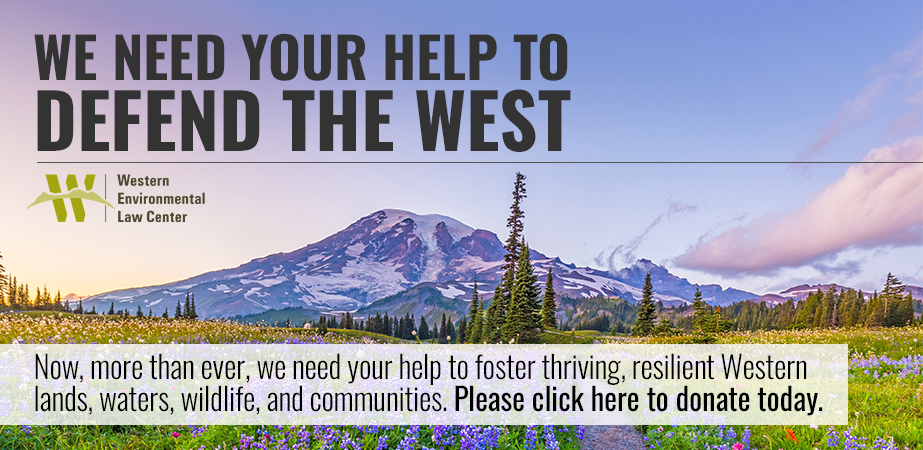Great Falls, Mont.
Today, the Montana Fish and Wildlife Commission approved a set of reasonable restrictions on trapping in Canada lynx habitat recommended by the Department of Fish, Wildlife and Parks in an agreement with three conservation organizations who challenged the state’s failure to adequately safeguard the protected cats.
In 2013 Friends of the Wild Swan, Alliance for the Wild Rockies and WildEarth Guardians, represented by the Western Environmental Law Center, sued Montana for its failure to ensure imperiled lynx are not caught in traps. Lynx are listed as “threatened” under the Endangered Species Act making it illegal to trap a lynx regardless of whether another animal was targeted or whether the lynx is killed, injured or released. At least 15 lynx were caught in traps in Montana since 2001, the most recent in December 2014. Five of these trapping incidents were fatal.
“We applaud the Montana Fish and Wildlife Commission for taking this important step in bringing Montana out of the dark ages where trapping occurred nearly unregulated,” said Bethany Cotton, wildlife program director for WildEarth Guardians. “These common-sense changes bring our state closer to ensuring our most imperiled wildlife are protected from cruel traps.”
Today’s approval of the settlement by the commission establishes a “lynx protection zone” in occupied lynx habitat in northwest Montana and the Greater Yellowstone region. The lynx protection zone restricts the size and placement of traps and snares that catch and sometimes kill lynx, and requires bobcat trappers to check their traps at least once every 48 hours. The use of fresh meat or feathers as bait is now prohibited in the lynx protection zone.
According to the best available science, these changes will significantly reduce or eliminate the risk of accidental lynx trapping and will decrease the likelihood of serious injury or death to the species if caught.
The agreement maintains the current closure of the wolverine trapping season in Montana for an additional two years with a requirement to consider the best available science before the season can be re-opened. It also includes enhanced monitoring and reporting, as well as a commitment from the state to meet with conservationists and update the regulations or the lynx protection zone boundary if more than one future lynx-trapping incident occurs.
“We appreciate the commission approving these changes that will reduce injury and mortality to imperiled lynx,” said Arlene Montgomery, program director for Friends of the Wild Swan. “Our goal is to protect and recover lynx and these new restrictions works toward that.”
“Lynx have been headed down the path to extinction partly because they were being illegally killed in traps set for other animals,” said Mike Garrity, executive director of the Alliance for the Wild Rockies. “We hope the measures approved today will mean the end of the incidental killing of lynx and will help Montana’s lynx population recover sufficiently to eventually be delisted as a protected species.”
“These are long overdue but important changes that if successful should keep lynx out of traps and help the long-term recovery of the species in Montana, which is something we all want,” said Western Environmental Law Center Attorney Matthew Bishop. “We commend the state for taking the steps necessary to protect one of our state’s most iconic animals.”
First listed in 1999, lynx are imperiled by trapping, climate change, habitat fragmentation, and old growth logging.
Contacts:
Matthew Bishop, Western Environmental Law Center, 406-422-9866, gro.w1752529777alnre1752529777tsew@1752529777pohsi1752529777b1752529777
Arlene Montgomery, Friends of the Wild Swan, 406-886-2011, gro.n1752529777awsdl1752529777iw@en1752529777elra1752529777
Michael Garrity, Alliance for the Wild Rockies, 406-459-5936, moc.l1752529777iamg@1752529777seikc1752529777ordli1752529777w1752529777
Bethany Cotton, WildEarth Guardians, 406-414-7227
Read more about our lynx work here.

